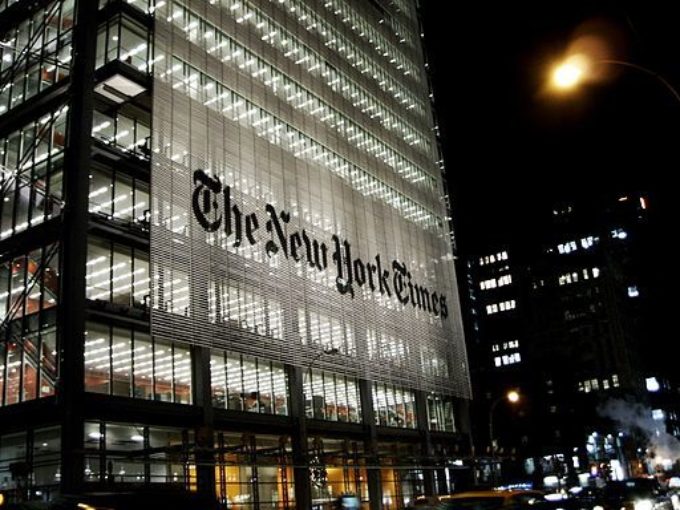
Trump Campaign Sues New York Times in Libel Suit Over Opinion Piece on Russia
By Avisha Sabaghian - Edited By Alicia Loh
Complaint, Donald J. Trump for President, Inc. v. New York Times, Co. (N.Y. Sup. Ct. Feb. 26, 2020) (No. 152099/2020).
On February 26, 2020, President Trump’s re-election campaign filed a defamation suit against The New York Times over an opinion piece by Max Frankel, headlined “The Real Trump-Russia Quid Pro Quo.” The piece claims that the Trump campaign had an “overarching deal” with “Vladimir Putin’s oligarchy” to relax Obama-era pressures against Russia in exchange for Russian help in the campaign against Hillary Clinton. The Times responded that it would fight the suit, stating that the suit seeks “to punish an opinion writer for having an opinion they find unacceptable.”
The suit alleges that the piece does not provide any proof for its claims, but that it infers them from previously reported contacts between a Russian lawyer and persons connected with the Campaign. To support its claim that the statements were in fact false, the suit references Special Counsel Robert Mueller’s report, which was released after the challenged statements. The suit claims that the report confirms the absence of a conspiracy between the Campaign and Russia in connection with the 2016 U.S. presidential election.
The defamation standard for cases involving public officials is strict, making it unlikely that the Campaign will succeed in its lawsuit. The relevant landmark 1964 Supreme Court case, New York Times Co. v. Sullivan, 376 U.S. 254 (1964), requires a plaintiff to establish that the statements were false and made with “actual malice.” To demonstrate “actual malice,” the plaintiff must prove that the publisher knowingly made false statements or displayed reckless disregard for the truth. In addition, a publisher cannot be held liable for commentary based on public facts, and Frankel’s piece explicitly asserted its conclusions based on publicly “known facts.”
The suit argues that The Times’ previous news stories on the topic confirmed the Mueller Report’s conclusions before the report’s release, and that the Times disregarded these stories and accused the Campaign of an “overarching deal” with the Russian government. In addition, the suit supports its allegation of actual malice by asserting that the Times is “extremely biased” towards the Campaign and Republicans in general, and that the opinion piece was intended to hurt the Campaign.
The suit seeks to further support its position by noting that the Times failed to contact the Campaign for comments or clarifications before publishing the piece. Times spokeswoman, Eileen Murphy, responded that the piece “was an opinion piece on reported news, not reporting on new facts,” and that the writer was not expected “to seek comment from the campaign (or Putin, for that matter).”
The Campaign claims to have been defamed by false accusations of unethical and unpatriotic conduct. It asserts that it will have to continue to fund corrective advertisements and asks for compensatory damages “in the millions of dollars,” punitive damages, and costs of suit. The suit also states that it seeks to “inform The Times readers (and the rest of the world) of the true facts.” Murphy, however, noted that there was no demand by the Campaign for a correction or retraction.
These suits are viewed as meritless from lawyers and commentators from both sides of the political aisle. Writing for The National Review, Andew McCarthy noted that as a matter of law, opinion is not subject to defamation, no matter how false or unreasonable, and that Frankel’s piece qualifies as opinion because it was published as one under the Opinion section. Georgetown Law professor Joshua Geltzer also noted that opinion pieces are not purportedly objective journalism and cannot be regarded as intentional false reporting.
Others like Harvard Law professor Laurence Tribe view the lawsuit “as a threat to the press' First Amendment rights.” Theodore Boutrous, in an opinion column for the Washington Post, said that the lawsuit “aims to chill freedom of speech and freedom of the press when it comes to Trump.” On March 3, 2020, the Campaign filed a similar lawsuit against the Washington Post concerning two opinion pieces that similarly alleged ties between the Campaign and Russia. Whether more lawsuits will follow is unclear, although when asked about the suit at a news conference on February 26, President Trump promised more suits against The Times.
Avisha Sabaghian is a 1L at the Harvard Law School.